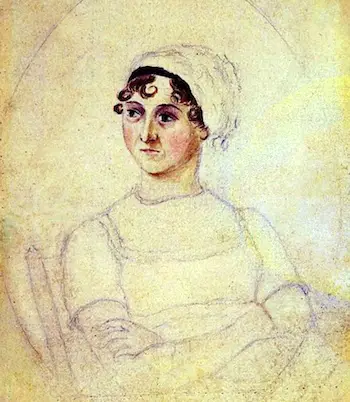Said of a woman who determines to gain the affections of a man.
Set one’s cap at
What's the meaning of the phrase 'Set one's cap at'?
What's the origin of the phrase 'Set one's cap at'?
It has been suggested that this phrase originates from the French nautical phrase ‘mettre le cap sur’ – ‘to set a course for’. This relies entirely on the ‘cap’ in the French phrase – apart from that there isn’t any evidence to support it. None of the early citations of the expression in English indicate either a foreign or nautical source.
It is much more likely to be a straightforward reference to the setting of a woman’s cap on her head. Women commonly wore caps of white linen or muslin in the 18th century. Any woman who was intent on attracting a man would certainly wear her best cap, probably ornamented with lace and ribbons, and set it at the most becoming angle. That certainly seems to have been the meaning suggested in She Stoops to Conquer by Oliver Goldsmith, 1773:
Well, if he refuses, instead of breaking my heart at his indifference, I’ll only break my glass for its flattery, set my cap to some newer fashion, and look out for some less difficult admirer.
By the early 19th century the phrase was common enough to have taken on a metaphorical usage. This came in useful for Jane Austen, and it is hard to imagine an Austen novel where a phrase that described the attracting of an eligible man to a single woman wouldn’t come in handy. After all, it is a truth universally acknowledged that a young Austen heroine must be in want of a husband. Sense and Sensibility, 1811, is a case in point:
“Aye, aye, I see how it will be,” said Sir John, “I see how it will be. You will be setting your cap at him [Willoughby] now, and never think of poor Brandon.”
“That is an expression, Sir John,” said Marianne, warmly, “which I particularly dislike. I abhor every common-place phrase by which wit is intended; and ‘setting one’s cap at a man,’ or ‘making a conquest,’ are the most odious of all.
See also: make a bee-line for.
Related phrases and meanings
Browse more Phrases
About the Author

Phrases & Meanings
A-Z
A B C D E F G H I J K L M N O P Q R S T UV W XYZ
Categories
American Animals Australian Bible Body Colour Conflict Death Devil Dogs Emotions Euphemism Family Fashion Food French Horses ‘Jack’ Luck Money Military Music Names Nature Nautical Numbers Politics Religion Shakespeare Stupidity Entertainment Weather Women Work
How did we do?
Have you spotted something that needs updated on this page? We review all feedback we receive to ensure that we provide the most accurate and up to date information on phrases.
